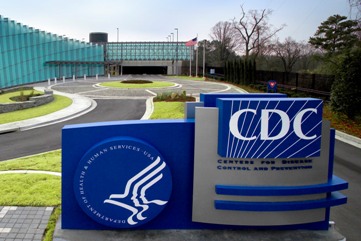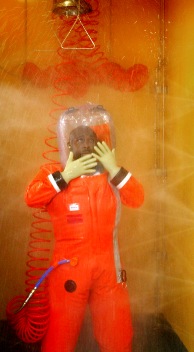College Site | College of Law Home | RSS Feeds | Alumni News | GSU College of Law Alumni News | Promoting Public Health Promoting Public Health
Question: What is the common thread among over twenty Georgia State Law alumni who go to court, counsel clients, analyze policy initiatives and legislation, circulate global news, undertake scientific research, prosecute crimes, publish articles, educate non-lawyers about the law, develop new computer software, and consider how laws affect the well-being of everyone in our society – young and old alike?
Answer: They all work for the Centers for Disease Control and Prevention (CDC), the federal government’s premier public health agency, which is headquartered in Atlanta.
Graduating from 1990 to 2011, they are all engaged in national and international efforts to prevent disease, injury, and death and improve people’s health.
These graduates’ diverse backgrounds and the varying nature of their work at CDC reflect the broad range of talents and interests that they brought to the College of Law as students. Despite their different job titles and work assignments, these Georgia State Law grads have a lot in common, from pride in their work to consensus on the benefits of CDC employment.
“Many law students believe that unless they are going to court or giving legal advice in a traditional law firm setting, they won’t be using the lawyering skills they’ve spent years learning at law school,” observed Charity Scott, Professor of Law and Director of the Center for Law, Health & Society at the law school. “What these graduates illustrate is how law school can prepare you for work in many different kinds of settings, including national and global policy work, program development, and research and training across a complex range of social and health-related issues, as well as for the more traditional practice of law.
What Is CDC?

The Centers for Disease Control and Prevention, headquartered in Atlanta, is the leading federal government agency with responsibility to promote the public's health, prevent disease, injury and disability, and ensure preparedness for public health emergencies.
It began in 1946 as the Communicable Disease Center (CDC). As the successor to an earlier Malaria Control in War Areas agency, its early focus was on controlling malaria by killing mosquitoes.
CDC is now a global leader in scientific research, investigation, and surveillance to address public health threats and challenges around the world, from infectious diseases and environmental hazards to injuries, disabilities, and chronic diseases.
An agency within the Department of Health and Human Services, CDC is organized into numerous National Centers, Institutes, and Offices. More than 15,000 employees work for CDC in over 50 countries.
Source: http://www.cdc.gov/about/history/ourstory.htm and http://www.cdc.gov/about/resources/facts.htm.
JDs at CDC
The nature of the work done by CDC professionals with law school diplomas can vary dramatically across different programs and offices at CDC. The Georgia State Law graduates who were surveyed for this story reflect the broad range of opportunities there.
"There are a surprising number of legally trained people at CDC," said Sherry Everett Jones, JD '03, a Health Scientist in the Division of Adolescent and School Health. "While a small number are practicing lawyers in the Office of the General Counsel, most are in various programs around CDC."
Roles for people with JD degrees extend well beyond placements in the Office of the General Counsel. "There are over 100 working in program and policy offices utilizing their analytical skills to advance CDC's public health mission," said Sal Lucido, JD '04, Acting Associate Director for Policy in the National Center on Birth Defects and Developmental Disabilities.
No Time to Read the Web Site? Watch the Movie!
 Contagion - a new movie by Steven Soderburgh starring Kate Winslet as a CDC Epidemic Intelligence Service officer - portrays a deadly disease outbreak and CDC's global efforts to investigate and control it. Parts of the movie were filmed at CDC, and CDC staff worked with the producers and actors.
Contagion - a new movie by Steven Soderburgh starring Kate Winslet as a CDC Epidemic Intelligence Service officer - portrays a deadly disease outbreak and CDC's global efforts to investigate and control it. Parts of the movie were filmed at CDC, and CDC staff worked with the producers and actors.
"I think it's a fair and accurate portrayal of how the public health community might respond to a disease outbreak like the fictional one in the film," said Thomas R. Frieden, CDC Director, in a September 10, 2011 essay for The Atlantic. "The idea of a contagion such as this is very real, and the CDC and the larger public health community work 24/7 to be as prepared as we can be."
For more information on CDC and Contagion, go to http://www.cdc.gov/Features/ContagionMovie/.